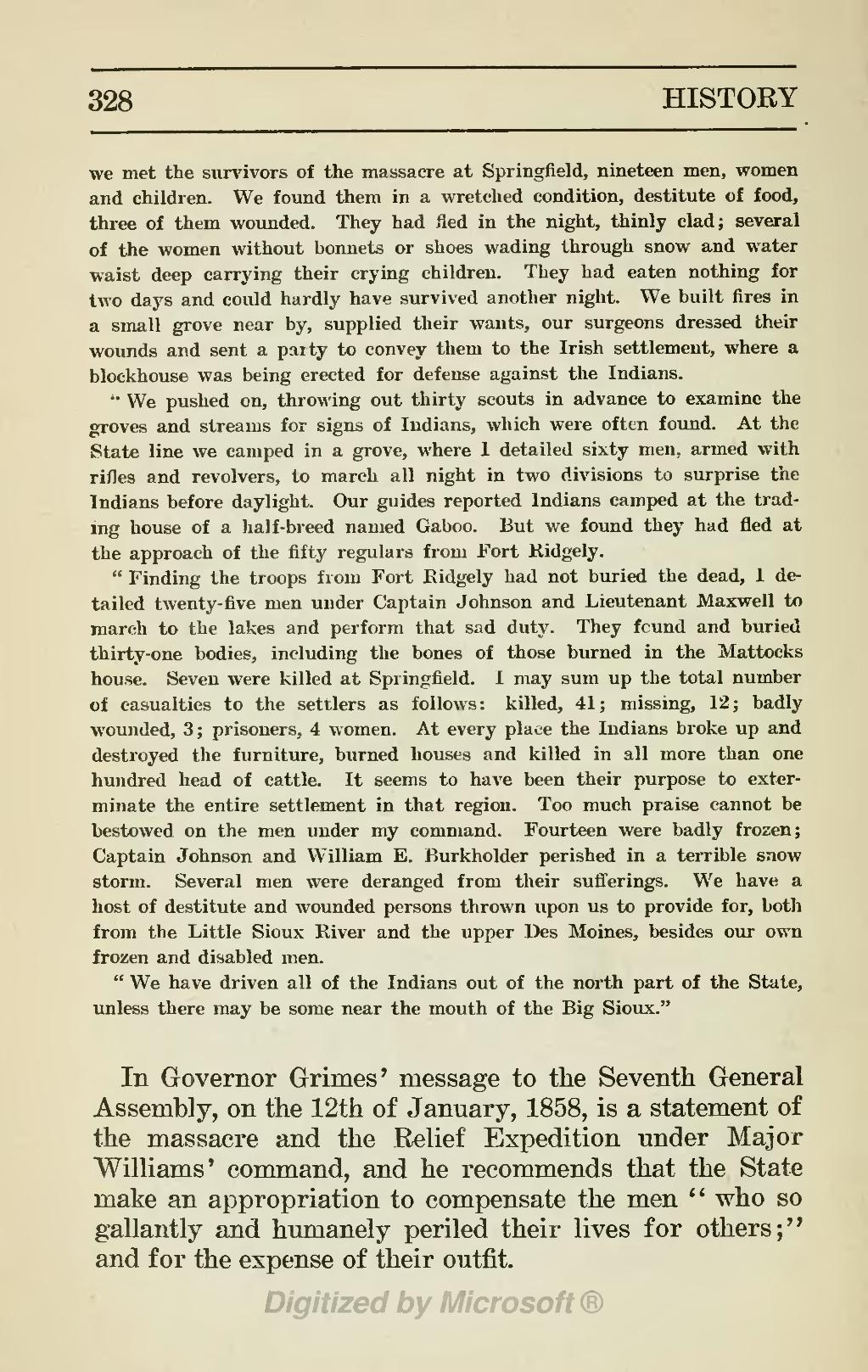| 328 | HISTORY |
we met the survivors of the massacre at Springfield, nineteen men, women and children. We found them in a wretched condition, destitute of food, three of them wounded. They had fled in the night, thinly clad; several of the women without bonnets or shoes wading through snow and water waist deep carrying their crying children. They had eaten nothing for two days and could hardly have survived another night. We built fires in a small grove near by, supplied their wants, our surgeons dressed their wounds and sent a party to convey them to the Irish settlement, where a blockhouse was being erected for defense against the Indians.
“We pushed on, throwing out thirty scouts in advance to examine the groves and streams for signs of Indians, which were often found. At the State line we camped in a grove, where I detailed sixty men, armed with rifles and revolvers, to march all night in two divisions to surprise the Indians before daylight. Our guides reported Indians camped at the trading house of a half-breed named Gaboo. But we found they had fled at the approach of the fifty regulars from Fort Ridgely.
“Finding the troops from Fort Ridgely had not buried the dead, I detailed twenty-five men under Captain Johnson and Lieutenant Maxwell to march to the lakes and perform that sad duty. They found and buried thirty-one bodies, including the bones of those burned in the Mattocks house. Seven were killed at Springfield. I may sum up the total number of casualties to the settlers as follows: killed, 41; missing, 12; badly wounded, 3; prisoners, 4 women. At every place the Indians broke up and destroyed the furniture, burned houses and killed in all more than one hundred head of cattle. It seems to have been their purpose to exterminate the entire settlement in that region. Too much praise cannot be bestowed on the men under my command. Fourteen were badly frozen; Captain Johnson and William E. Burkholder perished in a terrible snow storm. Several men were deranged from their sufferings. We have a host of destitute and wounded persons thrown upon us to provide for, both from the Little Sioux River and the upper Des Moines, besides our own frozen and disabled men.
“We have driven all of the Indians out of the north part of the State, unless there may be some near the mouth of the Big Sioux.”In Governor Grimes’ message to the Seventh General Assembly, on the 12th of January, 1858, is a statement of the massacre and the Relief Expedition under Major Williams’ command, and he recommends that the State make an appropriation to compensate the men “who so gallantly and humanely periled their lives for others;” and for the expense of their outfit.
